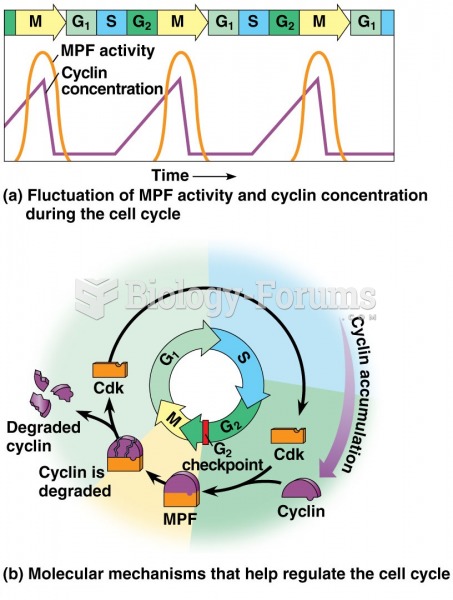|
|
|
Pope Sylvester II tried to introduce Arabic numbers into Europe between the years 999 and 1003, but their use did not catch on for a few more centuries, and Roman numerals continued to be the primary number system.
Earwax has antimicrobial properties that reduce the viability of bacteria and fungus in the human ear.
For pediatric patients, intravenous fluids are the most commonly cited products involved in medication errors that are reported to the USP.
Increased intake of vitamin D has been shown to reduce fractures up to 25% in older people.
The term bacteria was devised in the 19th century by German biologist Ferdinand Cohn. He based it on the Greek word "bakterion" meaning a small rod or staff. Cohn is considered to be the father of modern bacteriology.







